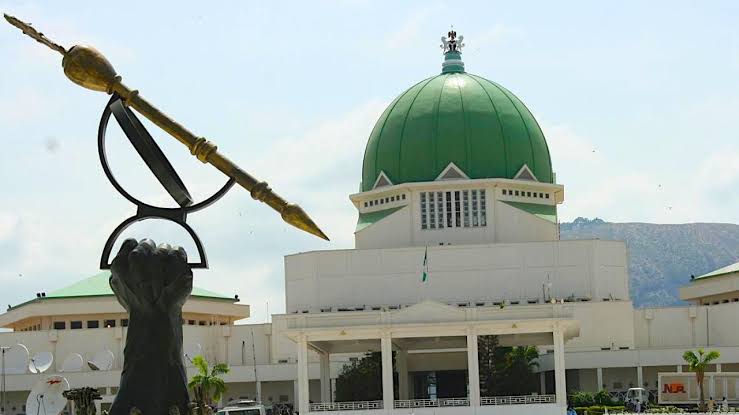Finally , the National Assembly has transmitted a set of four critical and controversial tax reform bills to President Bola Ahmed Tinubu for assent, marking a major step in the administration’s drive to modernise Nigeria’s tax system.
Chairman of the Senate Committee on Media and Public Affairs, Senator Yemi Adaramodu, confirmed the transmission during a press briefing held Tuesday at the National Assembly Complex in Abuja.
The bills – Joint Revenue Board (Establishment) Bill, Nigeria Revenue Service (Establishment) Bill, Nigeria Tax Administration Bill, and Nigeria Tax Bill have been the subject of intense debate, particularly in northern Nigeria, where several governors and stakeholders expressed concerns that the reforms might undermine regional interests.
“These bills have now been transmitted. It is out of our hands and on its way to the executive,” Senator Adaramodu stated, adding that the legislative process was thorough, involving rigorous legal and procedural reviews to ensure compliance with existing laws.
Originally proposed by President Tinubu in November 2024, the tax reforms are a cornerstone of his administration’s fiscal strategy, aimed at expanding the national tax base, improving collection efficiency, and strengthening coordination between federal, state, and local governments.
The harmonised versions of the bills were adopted by both the Senate and the House of Representatives on May 25, 2025.
“Tax bills like these require careful scrutiny,” Adaramodu explained. “Legal departments in both chambers ensured alignment with existing statutes before the final transmission to the Presidency. Once harmonised, the Clerk of the National Assembly prepares the documents for endorsement by the Senate President and House Speaker.”
Senate President Godswill Akpabio and Speaker of the House of Representatives Tajudeen Abbas have signed off on the final documents.
Senate President Akpabio had earlier praised the efforts of the National Assembly, describing the passage of the tax reform bills as a reflection of “strategic leadership, national interest, and inclusive legislative engagement.”
“These landmark tax bills will add immense value to governance and transform how taxes are collected, administered, and shared across Nigeria,” he noted.
Now awaiting presidential assent, the bills represent one of the most comprehensive overhauls of Nigeria’s tax architecture in recent years.



